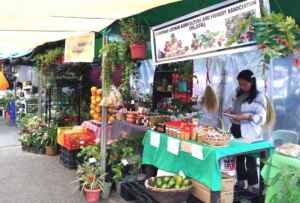RISING RENTAL COSTS IN BAGUIO CITY LEAVE STUDENTS AND LOCALS STRUGGLING
BAGUIO CITY
The rising cost of boarding houses and apartment rentals in the Summer Capital is placing significant pressure on students and working
residents, forcing many to reconsider their living situations. From P2,000–P 4,000 rates a few years ago, monthly rentals have soared to P7,000–P 10,000 for basic rooms, even those lacking windows or private bathrooms, according to current online listings and tenant reports. This escalation is largely driven by property owners converting long-term rentals into short-term tourist accommodations, such as
Airbnb units, especially during peak seasons and holidays, where daily income can triple.
Many students and low-income earners are left competing for limited affordable spaces, often sharing cramped rooms with strangers or settling for distant, poorly maintained, or unsafe living quarters far from schools. “I’m paying P10,000 a month for a room without a window,” said Camille Dela Cruz, a 3rd-year nursing student. “It’s expensive and barely livable, but there’s no cheaper option in the city
center.” Some have been forced to leave the city altogether. “I left Baguio because I could not afford the rent for me and my kids anymore,” said Ana Reyes, a single mother. “It feels like the city favors tourists over us.”
Landlords acknowledge the profitability of short-term rentals but recognize the impact. “We can earn more from tourists, but we know it’s
harder for students now,” said Alberto Lim, a boarding house owner. “There has to be a balance.” Experts urge stronger rental regulations, tenant protections, and affordable housing projects to balance tourism with residents’ needs, while advising renters to verify listings to avoid scams, poor conditions, or safety risks.
Jhomel Keith Nuezca / UC-Intern
BAGUIO FARMER'S MONTH IPINAGDIWANG SA ROSE GARDEN
June 8, 2025
Metro BLISTT
RAINFALL and RESPONSIBILITY
June 28, 2025
MILES IN THE RAIN
June 28, 2025
41 WANTED PERSON NADAKIP SA CORDILLERA
June 28, 2025
INCLUSIVE LEARNING FOR PERSONS WITH DISABILITIES
June 28, 2025





